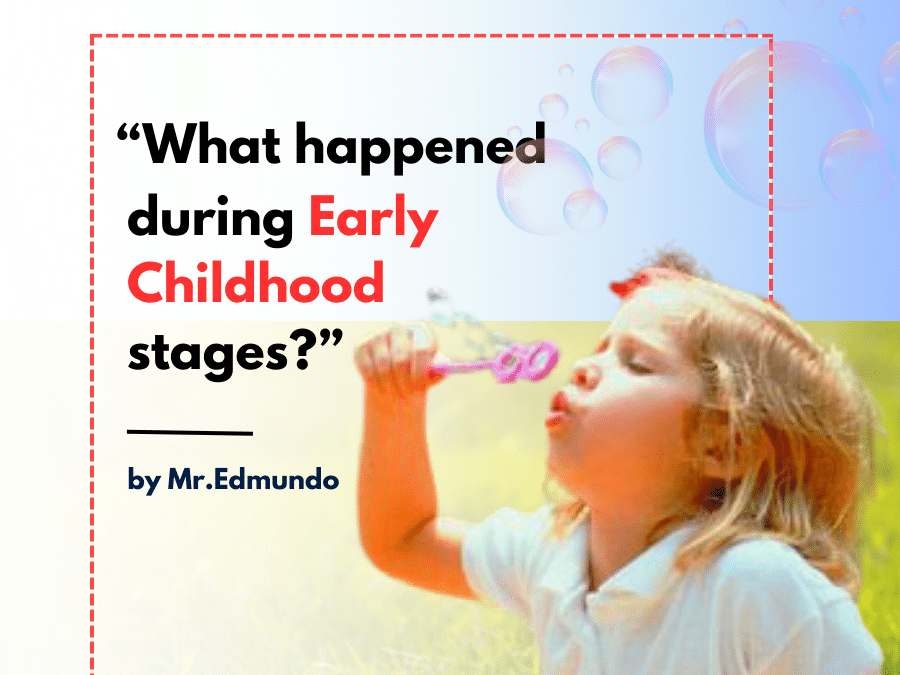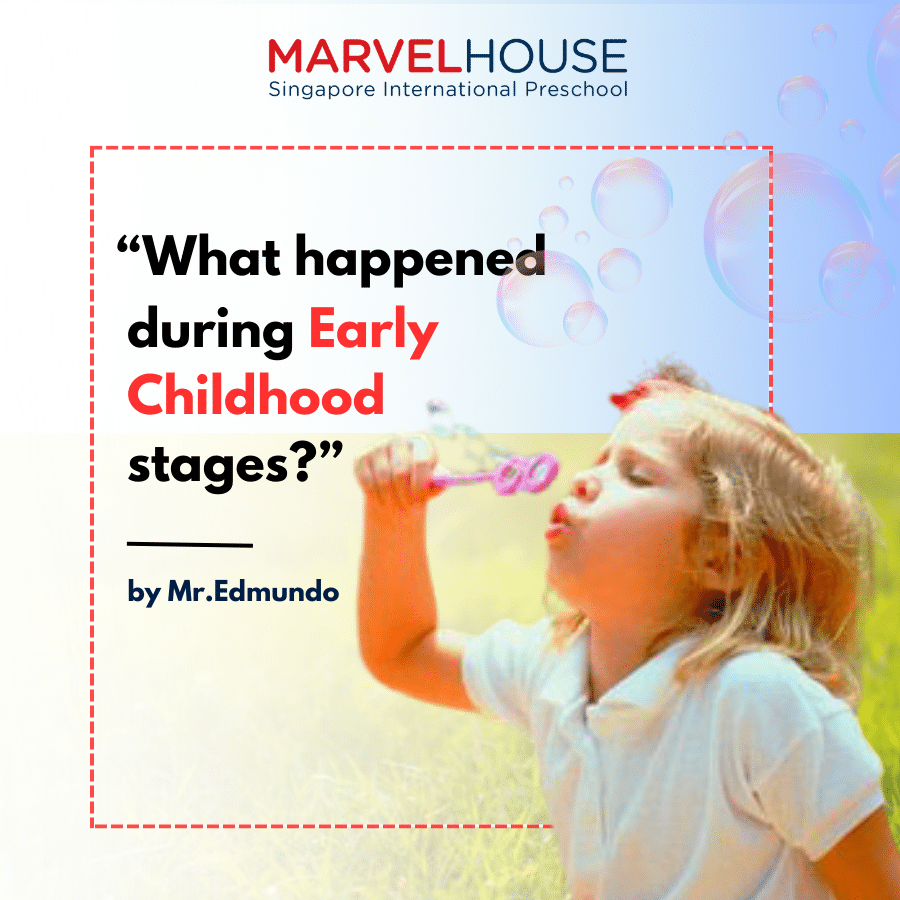
What Happened During Early Childhood Stages?

“What happens during Early Childhood stages.”
Dear Parents,
Wishing you a Happy New Year. My name is Teacher Ed, and I am teaching your child in the FF and GG class. My background is in Pedagogy (MA) and Psychology (MA) with a focus on “Clinical” Psychology. My expertise includes Early Childhood Development, Clinical Psychology and Coaching. In the following months, I will share my knowledge with self-written articles and occasionally some anecdotes from my previous experiences.
The science of Early Childhood is a dynamic field, as we continue to learn more about human behavior and the brain. So, let us first ask the question: “Why is the early childhood stage often referred as the most important stage of development”?
We currently know that by the age of six, a child’s brain has developed to 90% of its adult size. During this critical period, children continue to absorb a significant amount of information from their experiences and environment. These early experiences, whether positive or negative, play a crucial role in shaping a child’s future survival, growth, health, and overall wellbeing.
Early Childhood Development: Why it matters.
Early childhood, typically defined as the period from birth to eight years old, is a critical stage in human development. During this time, children undergo rapid physical, cognitive, emotional, and social growth that lays the foundation for their future well-being and success. Understanding the various aspects of early childhood development is essential for parents, educators, and policymakers to provide the necessary support and resources for children to thrive.
Physical Development
During early childhood, infants rapidly grow and strength, developing motor skills such as crawling, walking, and grasping objects. As they progress through early childhood, their coordination and fine motor skills improve, enabling them to engage in more complex activities such as drawing, writing, and playing sports. Proper nutrition and access to healthcare are crucial during this period.
Stages of development.
|
Age: |
Tendencies: |
|
Infants (1-2) |
Heavily dependent on adults/guardians. Concerned largely with solitary play. Learn through direct concrete experiences such as with tasting and touching, then with seeing and hearing to a lesser extent. Infants will often handle frustrations and discomfort by crying as a primal instinct. |
|
2-3 years of age |
Children in this age range will often continue being concerned with solitary play and may perhaps grow more possessive. The words “mine” and “no” are likely to be used quite often as they seek to influence their immediate surroundings. They have a limited understanding of the world around them, and a short-term memory. |
|
4-5-year-olds |
At around 4 years of age, children will often start to understand how to play in a cooperative way with others. They’ll look to engage with other children and towards 5 years of age may engage with adults more openly. They’ll often have creative imaginations and might blur the lines between truth and reality. |
|
6-8-year-olds |
Children around these ages will often start to form deeper interests in hobbies. They’ll be more capable of working with partners and should have developed an understanding of the teacher/student dynamic more clearly. Crying will be less common around this age, but shyness might still be an issue. |
Cognitive Development
The cognitive development of young children is marked by remarkable strides in learning and understanding the world around them. From infancy to early childhood, they acquire language skills, develop problem-solving abilities, and enhance their memory and attention span. This period is also characterized by rapid brain development, that promotes cognitive growth.
Emotional Development
During Early childhood, Children begin to recognize and express a wide range of emotions while learning to regulate their feelings. The relationships they form with caregivers and peers play a crucial role in shaping their emotional well-being. Positive experiences during this stage contribute to the development of resilience and emotional intelligence.
Social Development
Social interactions become increasingly important during early childhood. Children learn to navigate social dynamics, form friendships, and understand societal norms. Early experiences in social settings lay the groundwork for future relationships and interpersonal skills.
Recognizing the importance of this is essential for creating supportive environments that nurture the holistic development of young children. In the next article we will explore the essence of ECE programs. Feel free to contact us if there are any questions regarding your child.
Sincerely,
Teacher Ed.
